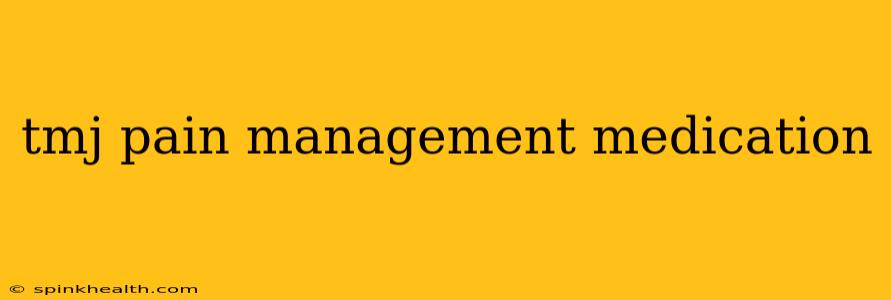The sharp, persistent ache, the clicking sounds, the headaches that seem to radiate from your jaw – these are all too familiar for those suffering from temporomandibular joint (TMJ) disorder. TMJ pain can significantly impact your daily life, making simple tasks like chewing or talking a painful ordeal. Finding effective TMJ pain management is a journey, but one with many potential avenues for relief. This isn't just about popping a pill; it's about understanding the root causes and exploring a multifaceted approach.
My name is Dr. Anya Sharma, and for over 15 years I’ve specialized in the diagnosis and treatment of TMJ disorders. I've witnessed firsthand the frustration and pain my patients experience, and I'm passionate about empowering them with knowledge to effectively manage their condition. While I can't offer medical advice online, this article aims to provide a comprehensive overview of TMJ pain management options, helping you navigate conversations with your healthcare provider.
What Medications Are Used for TMJ Pain?
The medication landscape for TMJ pain is varied, reflecting the complexity of the disorder. The type of medication prescribed often depends on the severity of your pain and its underlying cause. Your doctor might suggest a combination of approaches, targeting both pain relief and addressing inflammation or muscle spasms.
Commonly Prescribed Medications:
-
Over-the-Counter Pain Relievers: Nonsteroidal anti-inflammatory drugs (NSAIDs) like ibuprofen (Advil, Motrin) and naproxen (Aleve) are often the first line of defense. These help reduce both pain and inflammation. Acetaminophen (Tylenol) can help manage pain but doesn't address inflammation. Always follow the recommended dosage and consult your doctor if you have any concerns.
-
Muscle Relaxants: If muscle spasms are contributing to your TMJ pain, your doctor might prescribe muscle relaxants. These medications help relax the jaw muscles, reducing tension and discomfort.
-
Prescription-Strength NSAIDs: For more severe pain, stronger NSAIDs may be prescribed. These require a prescription and should be used under medical supervision.
-
Tricyclic Antidepressants (TCAs): These medications, while primarily used for depression, can also be effective in managing chronic pain conditions like TMJ, often by affecting neurotransmitter pathways related to pain perception.
-
Anti-anxiety Medications: Stress and anxiety can exacerbate TMJ symptoms. In certain cases, your doctor might prescribe anti-anxiety medications to help manage stress levels and potentially alleviate TMJ pain.
What are the Home Remedies for TMJ Pain?
While medication can provide significant relief, many find that home remedies can complement their treatment plan, offering natural ways to manage their symptoms.
-
Heat and Ice Packs: Alternating between heat and ice packs on the affected area can help reduce inflammation and muscle tension.
-
Gentle Stretching and Exercises: Specific exercises prescribed by a physical therapist or dentist can strengthen jaw muscles and improve range of motion. Avoid aggressive movements.
-
Stress Management Techniques: Practicing relaxation techniques like yoga, meditation, or deep breathing exercises can help manage stress and alleviate TMJ pain.
-
Dietary Changes: Eating softer foods and avoiding hard-to-chew items can reduce strain on the jaw joint.
Can TMJ Pain Be Treated Without Medication?
Absolutely! Many individuals find significant relief through non-medication approaches. These often focus on addressing the underlying causes of TMJ pain, rather than just masking the symptoms.
-
Physical Therapy: A physical therapist can teach you exercises and stretches designed to strengthen jaw muscles, improve range of motion, and alleviate pain.
-
Dental Appliances: Mouthguards or bite splints, custom-made by a dentist, can help realign the jaw and reduce strain on the TMJ.
-
Lifestyle Changes: Stress reduction techniques, improvements in posture, and dietary adjustments can significantly impact TMJ pain.
Does TMJ Pain Go Away on Its Own?
While some mild TMJ pain may resolve on its own, many cases require intervention to prevent chronic pain and long-term complications. Ignoring TMJ pain can lead to worsening symptoms, jaw dysfunction, and even damage to the joint itself. Early intervention is key to effective management.
How Can I Tell if My Jaw Pain is TMJ?
Differentiating TMJ pain from other jaw or facial pain conditions requires a proper diagnosis from a healthcare professional. A dentist or oral surgeon specializing in TMJ disorders can perform a thorough examination, assess your symptoms, and rule out other possible causes.
Conclusion: A Holistic Approach to TMJ Pain Management
Managing TMJ pain often requires a multifaceted approach. While medication can play a vital role in pain relief, combining it with lifestyle adjustments, physical therapy, and possibly dental interventions offers the best chance for long-term success. Remember, open communication with your healthcare provider is crucial in developing a personalized treatment plan that effectively manages your TMJ pain and improves your overall quality of life. Don't hesitate to seek help – effective TMJ pain management is within reach.

